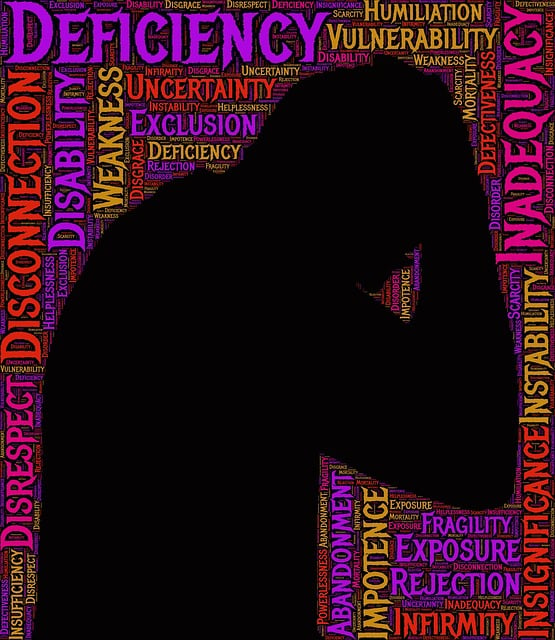Denver Relationship Issues Therapy (DRT) relies on comprehensive risk assessment to tailor effective mental wellness coaching programs. By analyzing past traumas, current stressors, and behavioral patterns, therapists predict and mitigate risks, creating safer environments for clients. This approach enhances treatment precision, supporting clients' journeys towards improved mental health. DRT incorporates multi-faceted strategies, including evidence-based practices and cultural competency, to foster secure spaces where individuals gain coping mechanisms, conflict resolution skills, and resilience, ultimately mitigating relationship strain risks and enhancing overall well-being.
Risk assessment and harm minimization planning are essential components of effective therapy, especially when addressing complex issues like Denver relationship problems. This article delves into the critical process of understanding risk assessment as a cornerstone of quality care. We explore identifying potential harms specific to Denver relationship issues and provide strategies for successful therapy, including implementation and monitoring techniques to ensure client safety during sessions. By adhering to these practices, therapists in Denver can offer tailored, secure, and life-changing support.
- Understanding Risk Assessment: A Cornerstone of Effective Therapy
- Identifying Potential Harms: Navigating Denver Relationship Issues
- Developing a Minimization Plan: Strategies for Denver Therapy Success
- Implementation and Monitoring: Ensuring Safety in Therapy Sessions
Understanding Risk Assessment: A Cornerstone of Effective Therapy

Understanding risk assessment is paramount in Denver relationship issues therapy and overall mental wellness coaching programs development. It involves a thorough evaluation of potential hazards and their likely impact, allowing professionals to implement harm minimization strategies effectively. By assessing factors like past traumas, current stressors, and behavioral patterns, therapists can predict and mitigate risks, fostering a safer environment for clients to address underlying issues.
This process goes beyond mere identification; it empowers mental health professionals to tailor interventions and create personalized self-care practices for each individual. Leveraging risk assessment in Denver therapy sessions enhances the precision and effectiveness of treatment plans, ultimately promoting positive outcomes and supporting clients’ journey towards improved mental wellness.
Identifying Potential Harms: Navigating Denver Relationship Issues

Identifying potential harms is a critical step in risk assessment and harm minimization planning, especially when addressing complex issues like Denver relationship issues. Therapy for couples in Denver often involves navigating intricate emotional landscapes, where unresolved conflicts can lead to significant mental health consequences if left unaddressed. By proactively identifying these potential harms, therapists can develop targeted interventions aimed at fostering healthy communication, enhancing emotional intelligence, and implementing burnout prevention strategies for healthcare providers involved in the process.
This nuanced approach goes beyond simply providing a safe space for dialogue; it involves a thorough Mental Health Policy Analysis and Advocacy to ensure that the therapeutic environment supports the well-being of both partners. Through this method, therapists can encourage individuals to develop coping mechanisms, improve conflict resolution skills, and cultivate resilience, thereby mitigating risks associated with prolonged relationship strain.
Developing a Minimization Plan: Strategies for Denver Therapy Success

In the realm of Denver relationship issues therapy, developing a robust harm minimization plan is pivotal for successful client outcomes. This strategy involves a multi-faceted approach tailored to address the unique challenges presented by each client. Therapists in Denver are equipped with techniques that foster resilience building, enabling individuals and couples to navigate emotional hurdles effectively. By integrating evidence-based practices and leveraging healthcare provider cultural competency training, therapists create a safe space where clients feel heard and understood.
A comprehensive minimization plan includes elements aimed at depression prevention, stress management, and conflict resolution strategies. The goal is not just to mitigate risks but also to empower individuals with the tools necessary for long-term mental well-being. Through tailored interventions and continuous support, Denver therapy sessions aim to enhance clients’ coping mechanisms, thereby fostering healthier relationships and improved quality of life.
Implementation and Monitoring: Ensuring Safety in Therapy Sessions

Implementing and monitoring safety protocols is an integral part of responsible Denver Relationship Issues Therapy. Therapists must create a secure environment where clients feel comfortable exploring sensitive topics and expressing their emotions freely. This involves establishing clear boundaries, ensuring confidentiality, and providing consistent support. Regular risk assessments should be conducted to identify potential hazards or triggers within the therapy process itself.
Effective monitoring includes ongoing evaluation of client progress, their emotional state, and any emerging issues. Therapists can then adjust treatment plans accordingly, incorporating strategies like Self-Care Routine Development for Better Mental Health and Emotional Well-being Promotion Techniques to enhance resilience and mitigate risks. Additionally, focusing on Confidence Boosting exercises can empower clients to navigate challenges and make informed decisions during therapy sessions, ultimately contributing to their overall well-being.
Risk assessment and harm minimization planning are essential components of successful therapy, especially when addressing complex issues like Denver relationship issues. By understanding potential risks, identifying harms, and developing comprehensive minimization plans, therapists in Denver can create a safe and supportive environment for clients. This structured approach ensures that therapy sessions remain effective while safeguarding client well-being, ultimately fostering positive outcomes in the treatment of Denver relationship issues therapy.














